Last updated: Wednesday, June 7 at 5:51 p.m. (ART). Find updates below.
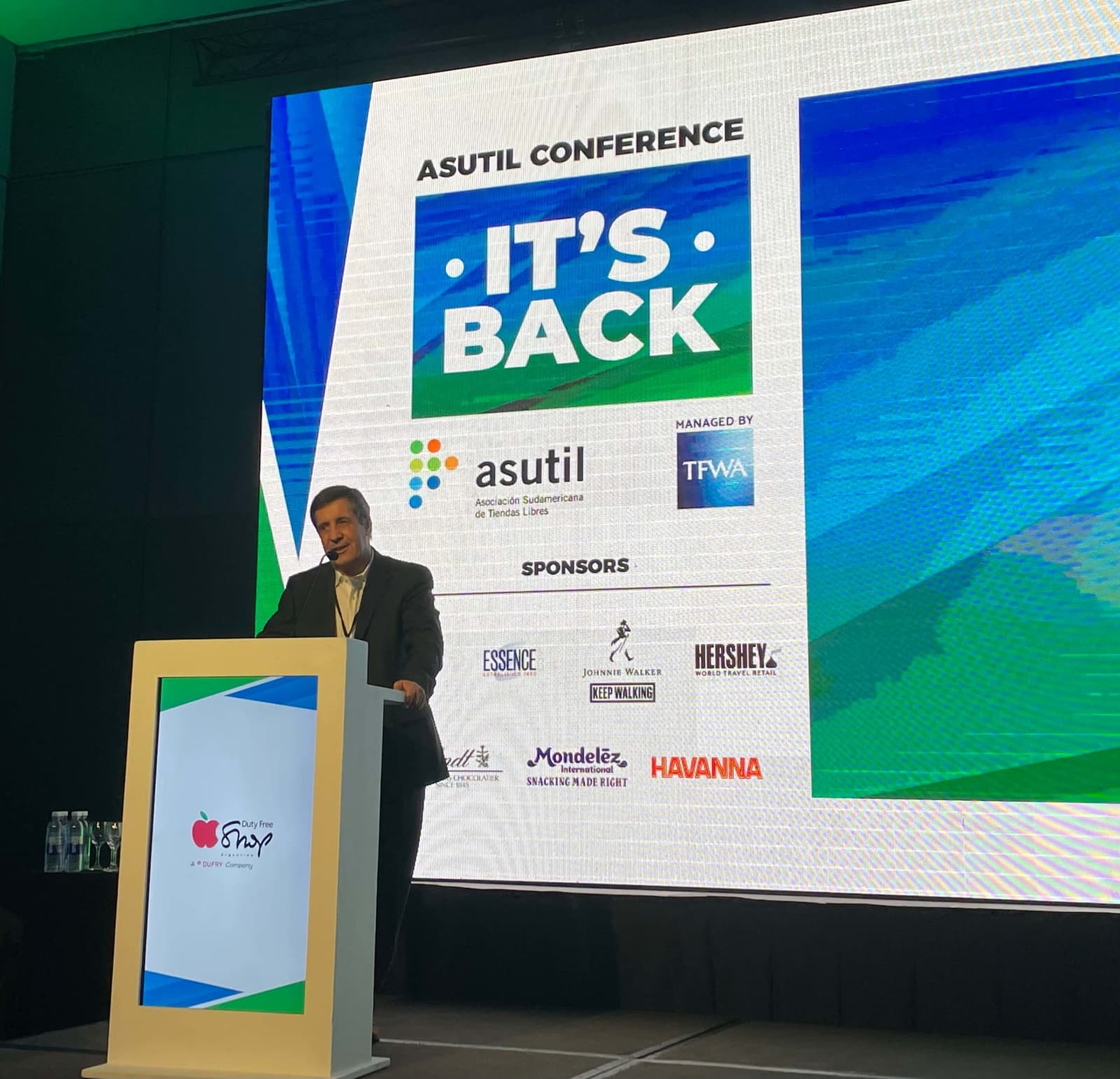
ASUTIL Secretary General José Luis Donagaray opened the conference
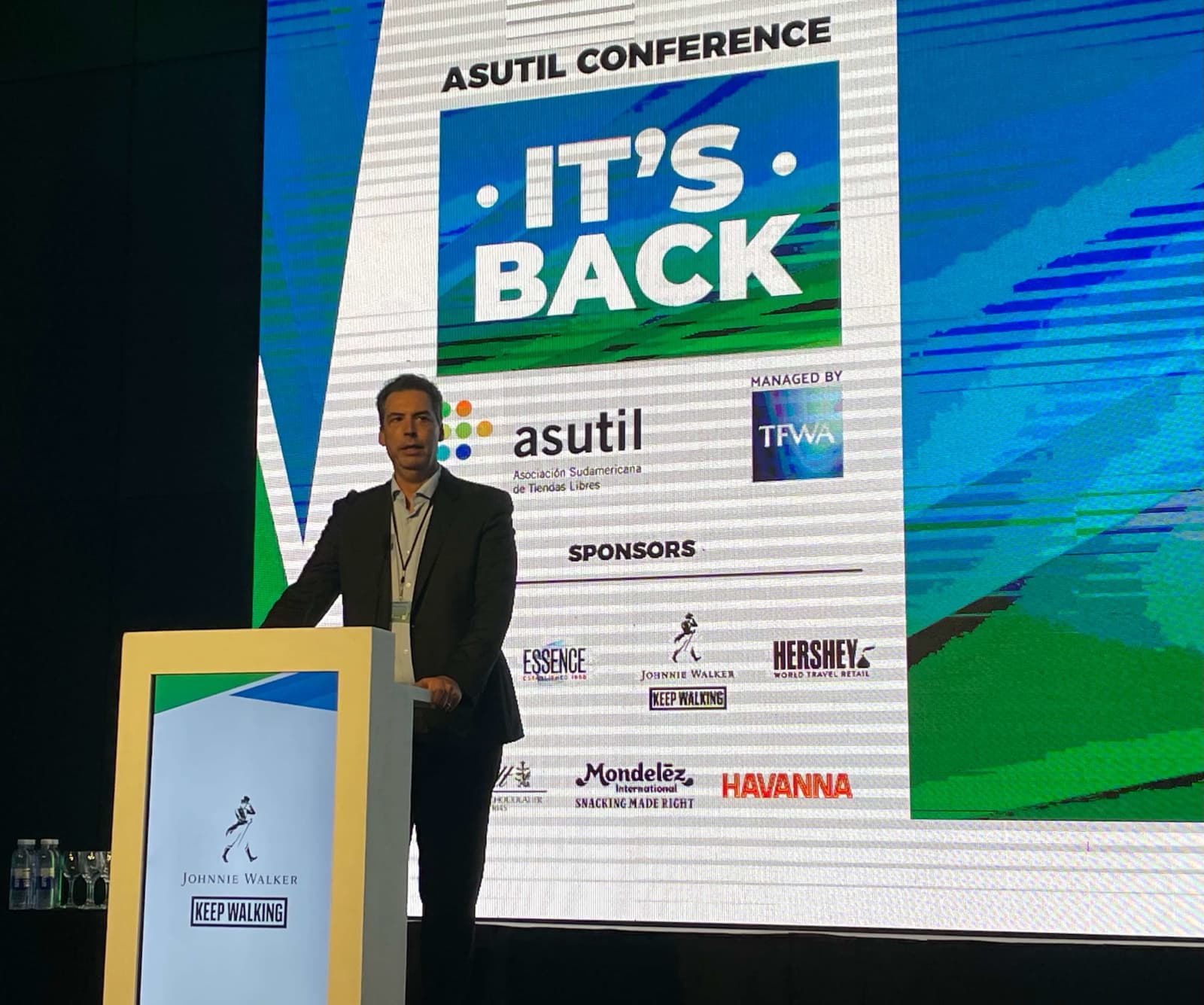
ASUTIL President Gustavo Fagundes
Wednesday, June 7 – 9:00 a.m.: Conference Opening
This morning, ASUTIL Secretary General José Luis Donagaray and ASUTIL President Gustavo Fagundes welcomed delegates to this year's ASUTIL Conference.
With the total number of attendees at this show close to that of the last one, the association is focused on growing the quality of the conference. Featured speakers and panelists shared local, regional and global insight on relevant issues across the channel.
Fagundes noted that in some cases, Latin America has surpassed 2019 levels (read below for more details).
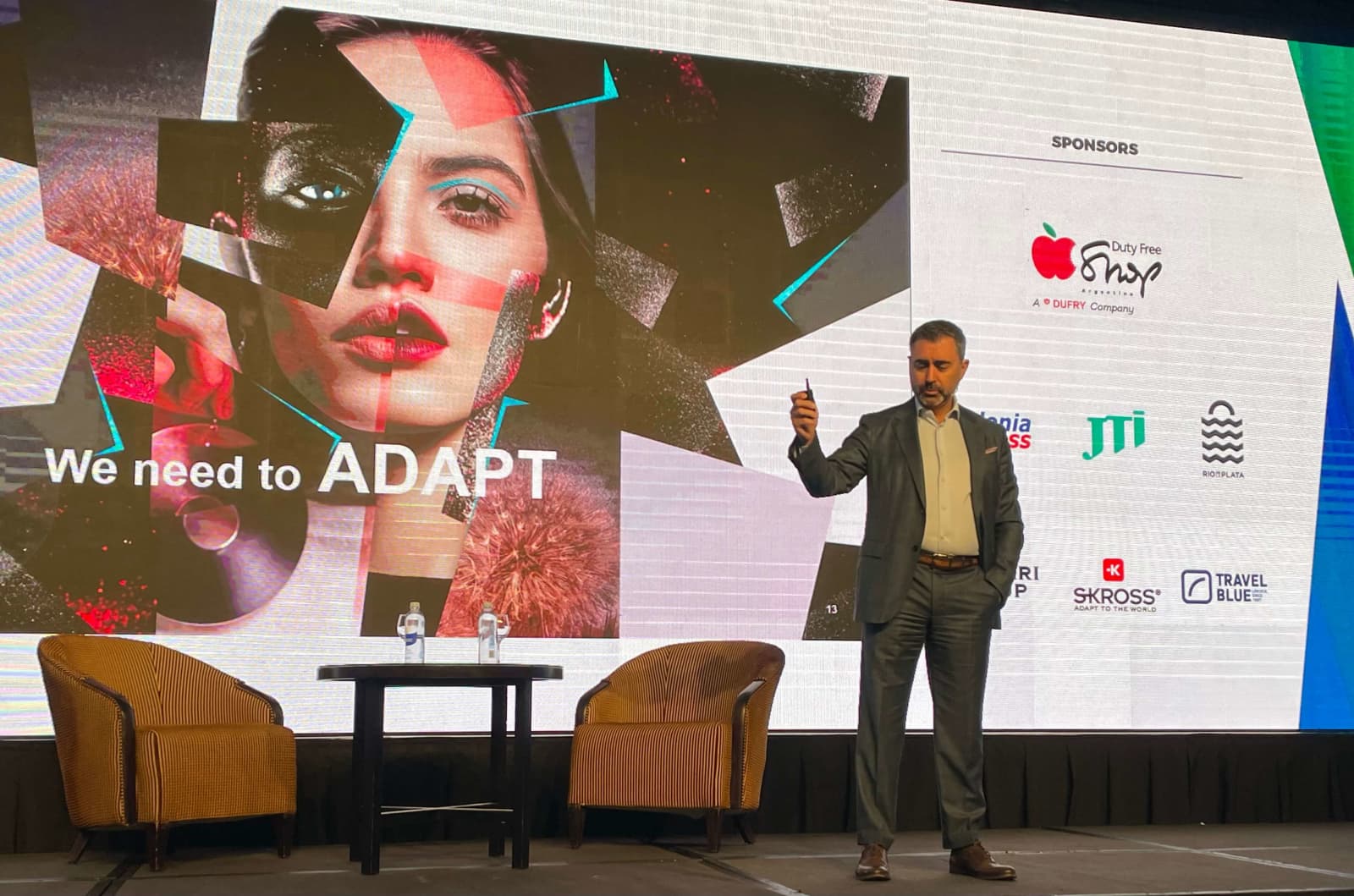
Xavier Rossinyol, CEO, Dufry Group
Wednesday, June 7 – 9:15 a.m.: New Horizons for Duty Free
Delivering the conference's keynote address, Dufry CEO Xavier Rossinyol offered his vision for the future of duty free in the region, as the industry modernizes and adapts in order to successfully connect with the post-pandemic consumer.
As the largest operator in the world with 5,500 outlets and 1,200 locations, Rossinyol says the key to success is execution. This is supported by Dufry's merger with Autogrill, the implementation of its new traveler-centric strategy "Destination 2027" and the Group's ability to constantly adapt to consumer trends.
Referring to the pandemic as an accelerator of global macro trends, Rossinyol pointed out that the post-COVID "travel world" wants greater personalization, more disruptive experiences (automation, seamless pick-ups, frictionless payments and check-outs) and local and seasonal offerings. The share of Generation Y and Z duty free shoppers is significantly increasing, along with sales that are directly influenced by online.
While travel retail is a reliable market with a unique point of sale and big competitive advantage, Rossinyol stated it's not dynamic enough as an industry to reflect these changes.
"The only way to adapt successfully is to move forward together," he said.
On Dufry's agenda: to create smart, fun and flexible stores. Considering the channel's limited dwell time and the consumer's increase in mobile screen time, it's up to the industry to tap into the potential of one-to-one marketing. Rossinyol also noted entertainment is vital to attracting shoppers and that Dufry has created a position to help train its sales force to become more entertaining in order to connect with consumers and boost sales.
“We need to invest in technology to facilitate a more convenient experience; but the sales force is the key driver of interaction between the consumer and our stores," he added.
Acknowledging that a diverse and inclusive sales force is not only necessary, but also good for business, he referred to the Group's "responsibility" to bring ease and excitement to the overall airport experience and travel journey.
"Life is too short not to have fun," he said.
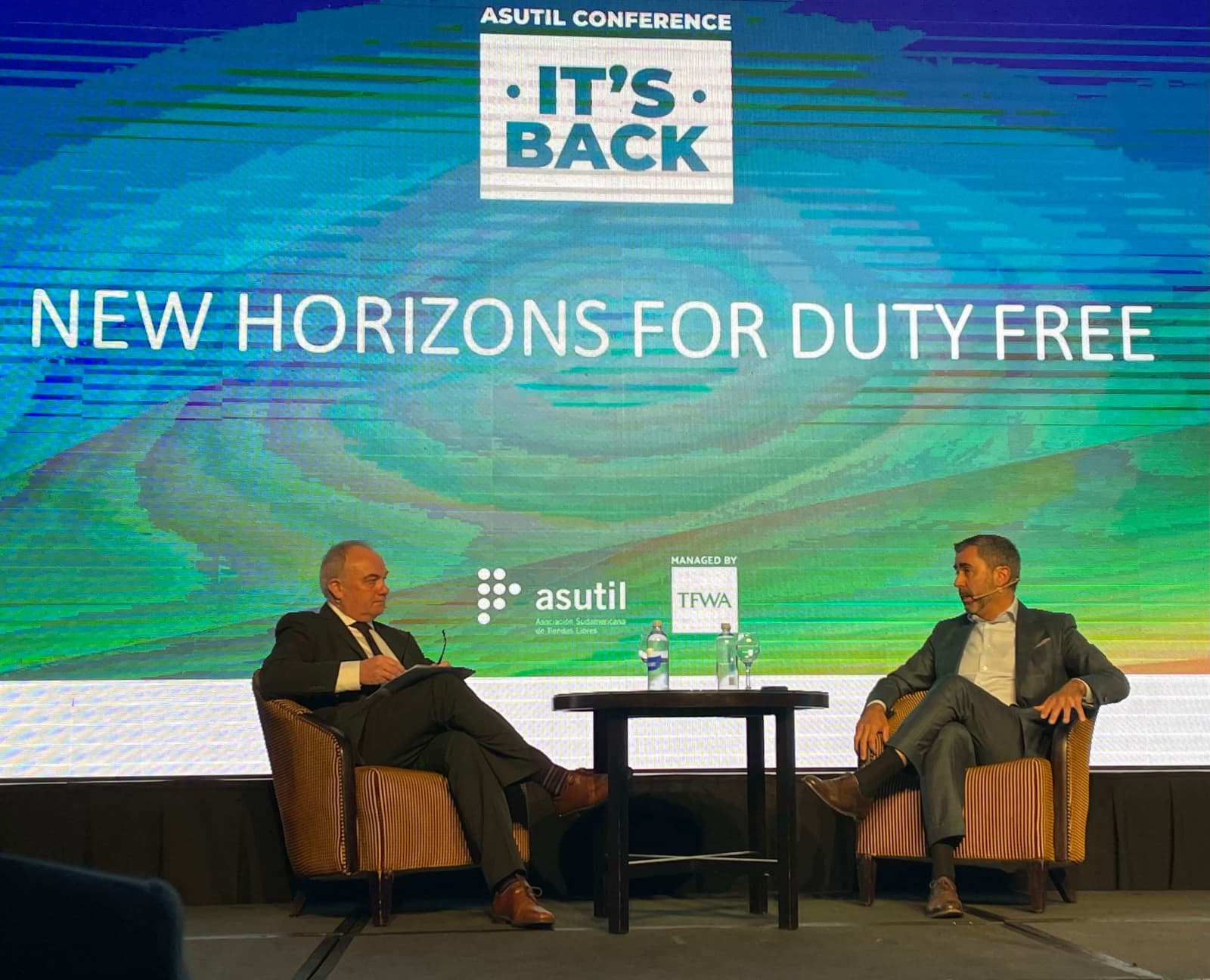
Rossinyol's presentation was followed by a Q&A moderated by Dermot Davitt
The session was moderated by Dermot Davitt, President at The Moodie Davitt Report.
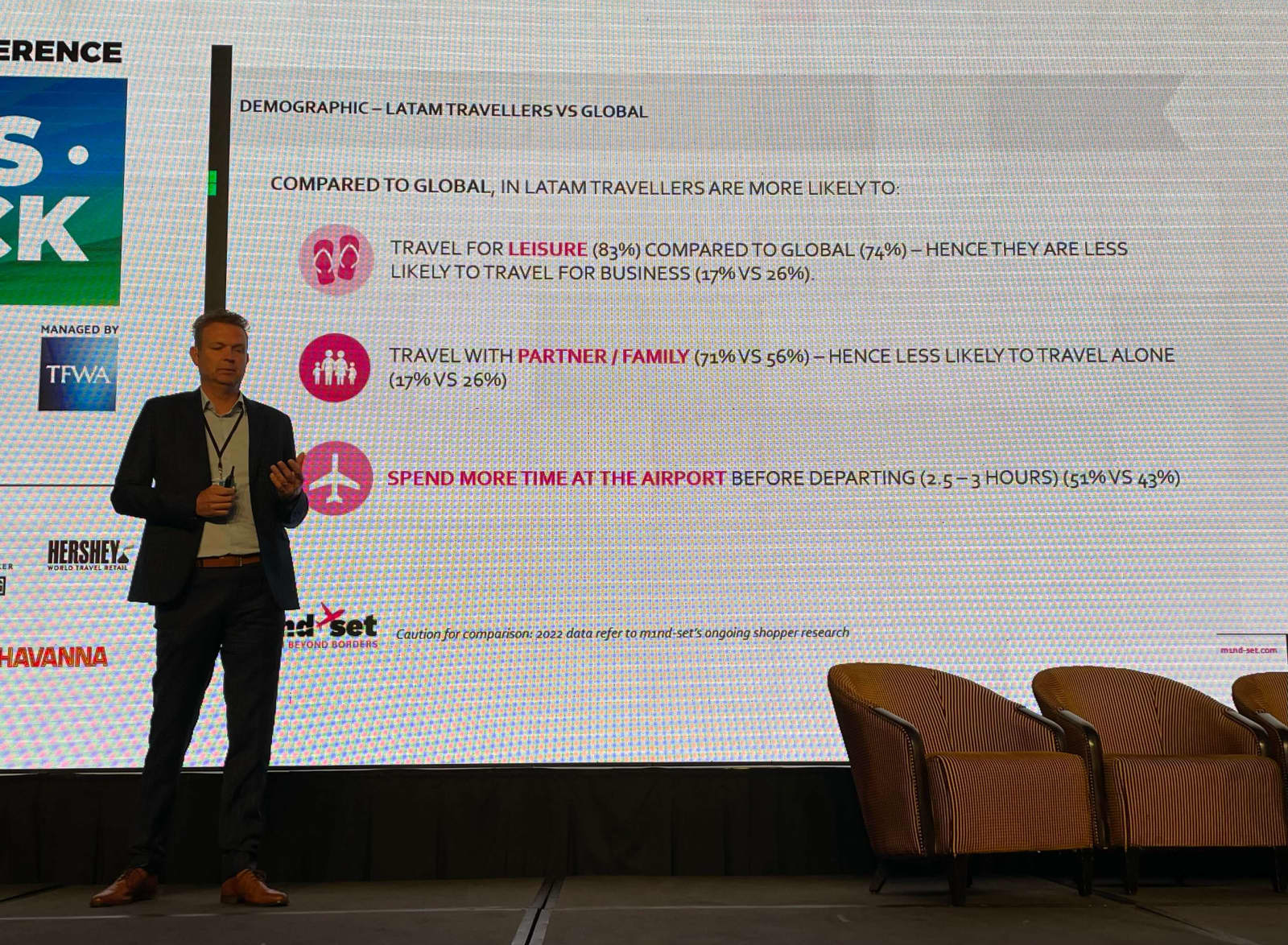
According to m1nd-set data, compared to global travelers, LATAM travelers are more likely to travel for leisure, travel with their partner/family and spend more time at the airport
Wednesday, June 7 – 10:45 a.m.: The Latin American Traveling Consumer: an exclusive study
Dr. Peter Mohn, Owner & CEO at m1nd-set, shared with delegates the findings of a new study conducted by the agency exclusively for ASUTIL. The research specialist provided the latest data on the motivations, preferences and behaviors of the Latin American duty free shopper. Plus, he offered a critical look at changes to the landscape worldwide.
Mohn opened by reiterating a fact previously shared by Rossinyol: 11% of the world's population has never been on an airplane. This is a sign of the degree of potential available to the travel retail industry in the years ahead.
Key takeaways:
- Regarding air traffic in Latin America and international departures; Cancun Airport topped the list in 2023 with 9.7M passengers and +3.1% growth vs. 2022 (the most popular final destination: Miami, USA)
- Current profile of international travelers in LATAM: average age 39 years-old, almost equal gender split, overwhelmingly travel in standard class (88%), on leisure (83%) and with their partner/family (71%)
- Compared to global travelers, LATAM travelers spend more time at the airport (arrive at the airport on average 2-3 hours before departure)
- Current profile of duty free shoppers in LATAM: more likely to be younger, female and flying premium cabin class for business purposes; more often traveling internationally
- The distribution of segments among travelers in LATAM finds “price sensitive shopping lovers” make up the largest share at 30%
- Slightly less than half of travelers in LATAM visit duty free shops; conversion rate of visitors is 58% and purchase rate is 26% (the average spend per passenger in the region is lower vs. the global average)
- The fragrances & cosmetics category respresents the highest footfall and the second highest purchase rate
- Top driver to visit duty free: looking for promotions (33%); top driver to purchase duty free: value for money (24%); top purpose of purchase: self-consumption (50%)
- 35% of duty free shoppers started thinking about their purchase before leaving for the airport; 44% of duty free shoppers noticed touchpoints before shopping
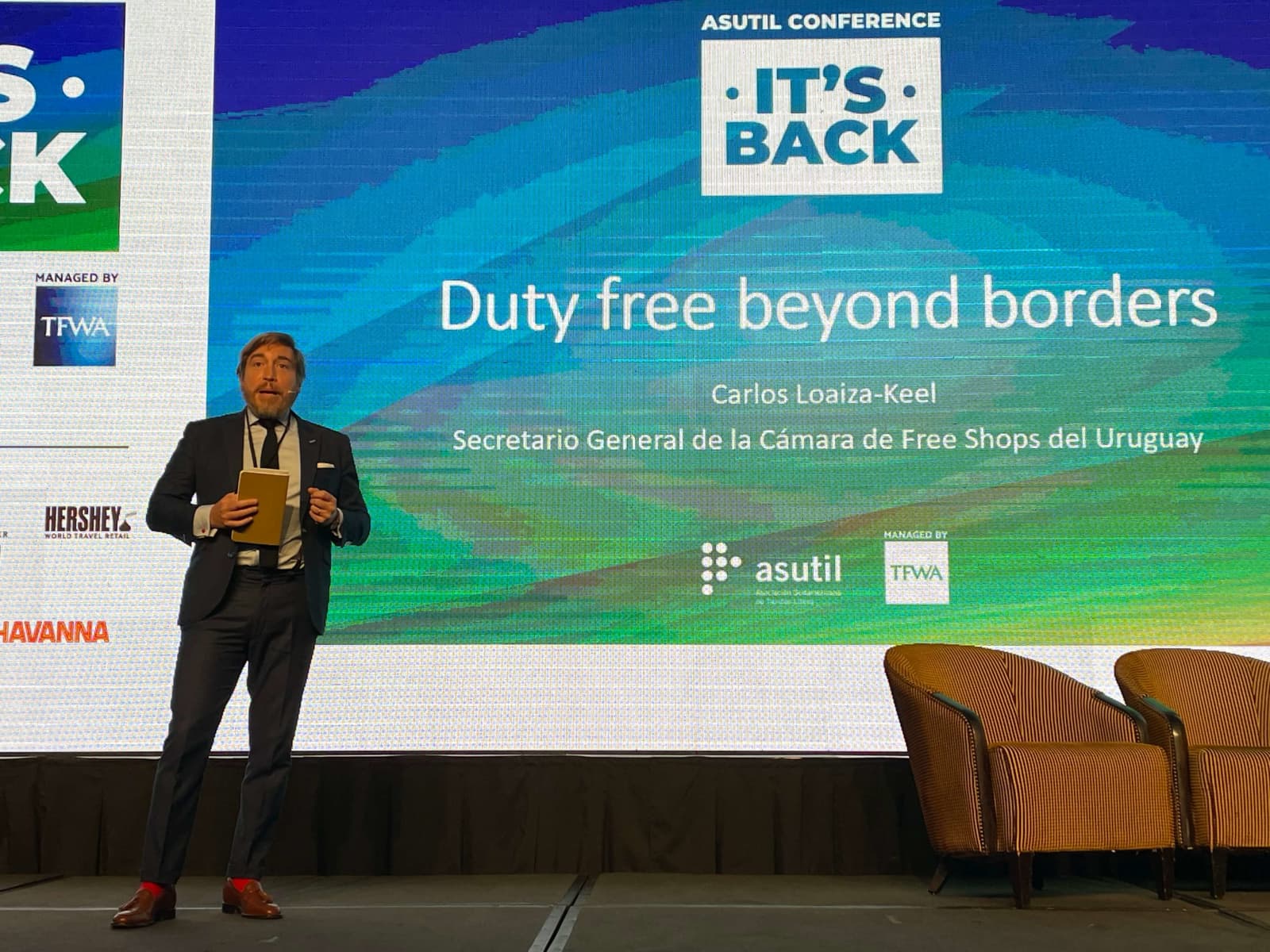
Duty Free Beyond Borders was moderated by Carlos Loaiza, Secretary General at CEFSU
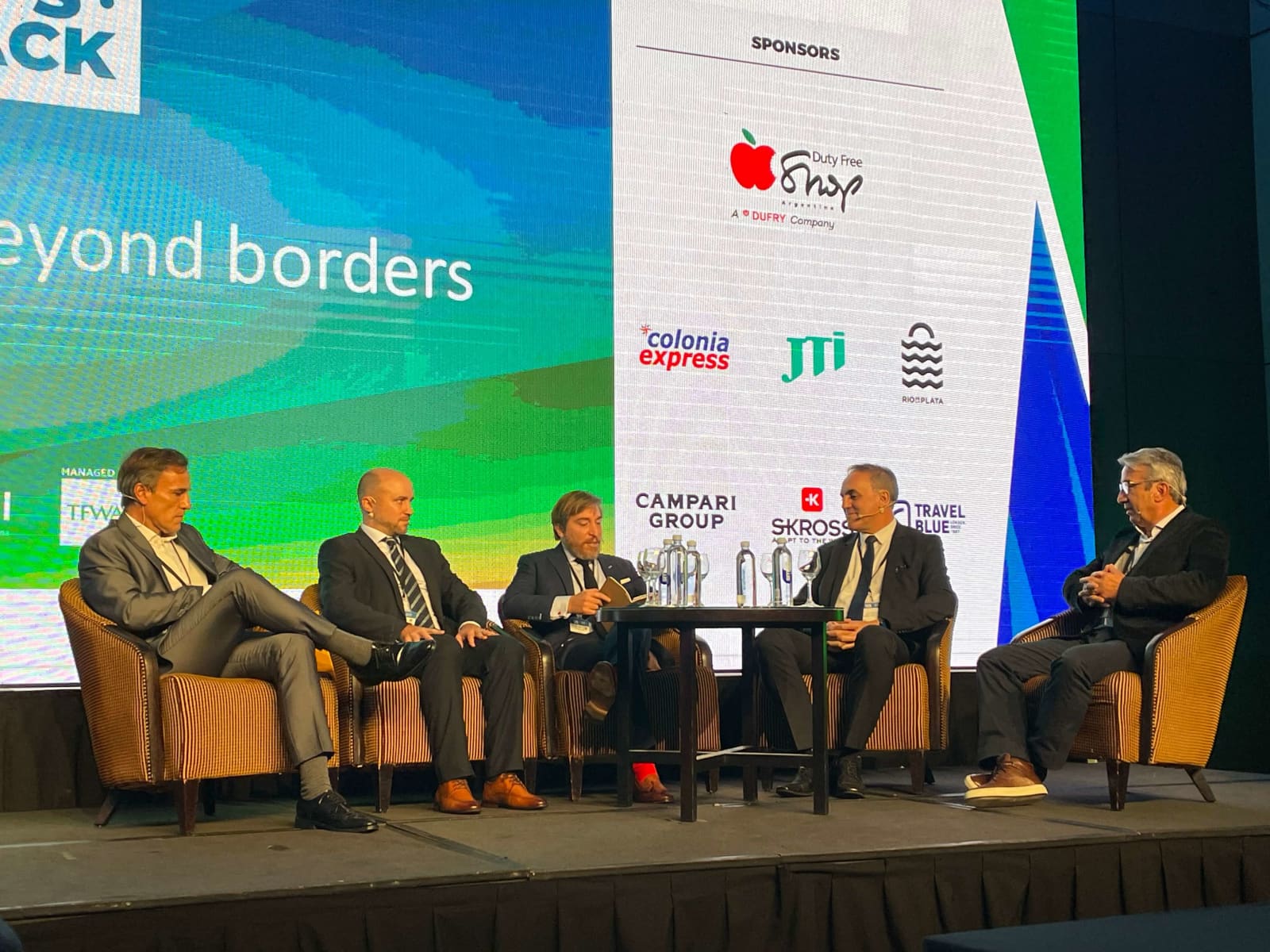
[L-R]: Neutral CEO Marcelo Montico, Juan Alfonso Labraga Brea, Director of Trade Policy at the Ministry of Economy and Finance in Uruguay, Carlos Loaiza, Secretary General at CEFSU, Altemir Linhares de Melo, Regional Superintendent at the Federal Revenue of Brazil, BAH Free Shop CEO Paulo Pavin
Wednesday, June 7 – 11:30 a.m.: Duty Free Beyond Borders
Day one's Duty Free Beyond Borders session, moderated by Carlos Loaiza, Secretary General at CEFSU, featured a bi-national panel and perspectives both from the public and private sector. Duty free border stores are benefitting from "fresh investment" from retailers and brands alike, as more Latin Americans have started to travel internationally more frequently.
The panel of speakers included Neutral CEO Marcelo Montico, BAH Free Shop CEO Paulo Pavin, Juan Alfonso Labraga Brea, Director of Trade Policy at the Ministry of Economy and Finance in Uruguay and Altemir Linhares de Melo, Regional Superintendent at the Federal Revenue of Brazil.
Alongside talk on taxes, regulations and the supply chain, harmonization and collaboration served as a reoccurring themes among the discussion. Whether addressing government models or duty free channels, leading players in the industry are striving for a sense of cohesion and a revised value proposition.
Montico described "the driving effect" of duty free border stores, which was practiced during the pandemic, and their indirect economic impact on the wider travel retail channel and the domestic market per location.
Elaborating on this point and circling back to earlier sessions in the day, Pavin discussed the importance of duty free border stores not only as a source of income, but also self-esteem and social inclusion. He summarized, for individuals and families who live in small cities, make a living in agriculture – and are likely to never have been on a plane – border stores offer shoppers the opportunity to gain a global perspective; one where they can touch, taste and experience the goods.




